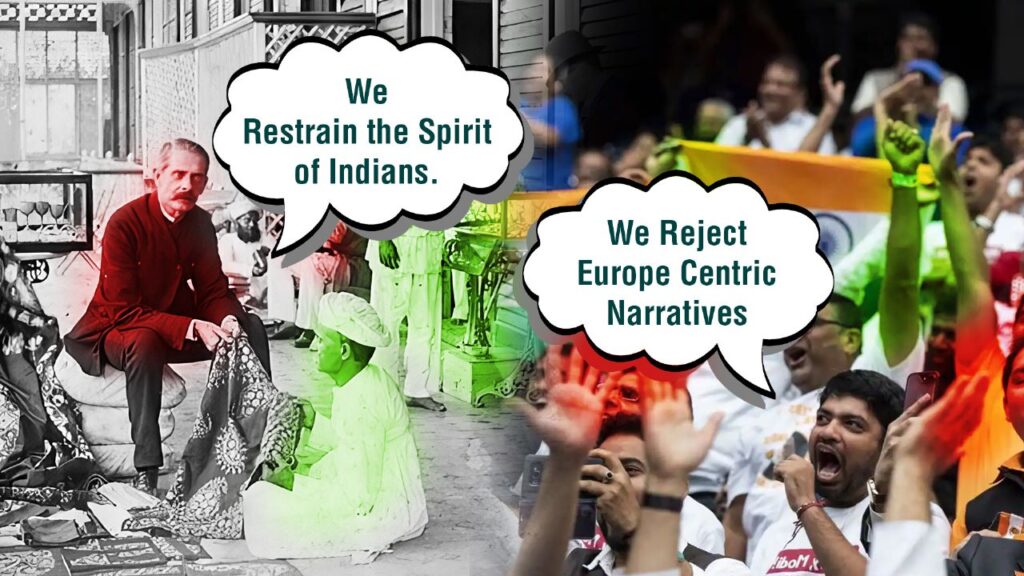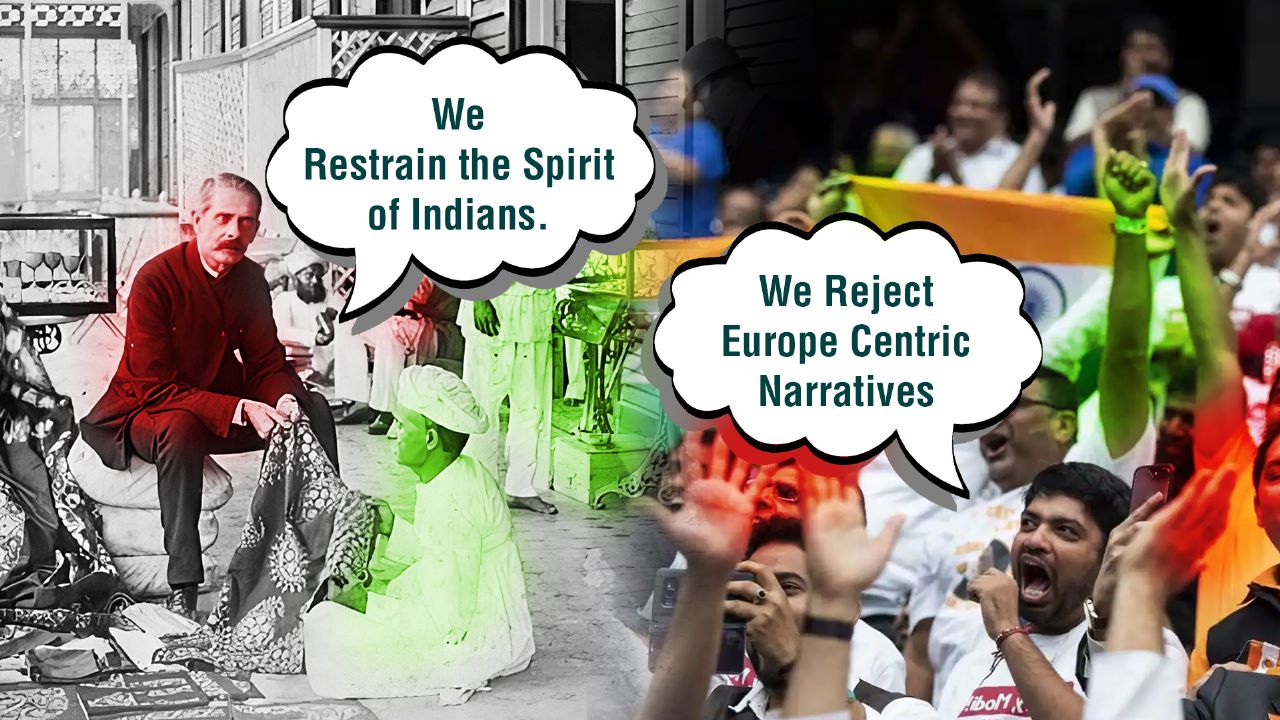
Reject European Centric Narratives on India
Reclaiming Indian heritage, knowledge systems, cultural and spiritual vision based on Hindu way of life represent real India
Rohan Giri
At the launch of \”Narrative ka Mayajal\” authored by former Rajya Sabha Member Balbir Punj, Rashtriya Swayamsevak Sangh (RSS) Sar Karyavah (General Secretary) Dattatreya Hosabale said “the so-called educated people and media in Bharat have embraced Euro-centric ideas and narratives that got deeply ingrained in our lives, education system, and societal perspective. The narrative cannot transform until we relinquish this colonial mind set.”

This view on conversations and public discourse in India held by Hindu centric RSS has kicked off a serious debate in India i.e. Bharat.
India narrative and the colonial mindset are interconnected and have a long history dating back to the era of imperialist British rule pre-independence. Understanding this relationship requires examining how colonialism shaped Indian mindset and continues to influence narratives in the country even after 75-years post-independence.
Colonial subservient mind-set was conveniently adopted by the elitist few that worked in tandem with their British masters. This mind set always centred on British superiority syndrome and looked down at the Indian way of life or society.
After having destroyed rich cultural heritage, indigenous knowledge systems and ethos, British rulers had systematically perpetuated the inferiority complex through education, media, academics, thinking processes and administrative policies. British portrayed themselves as the civilizing force, claiming to bring modernity, progress, and enlightenment to the “backward” and “uncivilized” Indians aggressively peddled by Lord Macaulay’s education doctrine. Such ideas were propagated to justify British rule and retain its control on Indian people, her resources, assets and destroy her culture, heritage and sanatan dharma.
Education played a crucial role in shaping the colonial mindset. The British introduced a Western-style of education system that glorified British culture, history and achievements while denigrating Indian heritage and traditions. This led to devaluing indigenous knowledge systems and cultural practices, making many Indians internalize a sense of inferiority and cultural loss.
At the book launch, Dattatreya Hosable said before the British came, Indians never underestimated themselves and fought against their enemies with courage and confidence. But the British created a narrative that made us doubt our own abilities. Also, he said they made us hate ourselves; such a narrative was spread by their agents through academia, universities, think tanks, international media and the judiciary. RSS strongly believes that we need to rediscover true India in the term of Atma Nirbhar Bharat, Hosabale stated.
At the last year customary Vijayadashami speech, RSS Sarsanghchalak (Head) Dr Mohan Bhagwat had said, “We need a Swa-centric approach towards history of India\’s freedom movement.\”
British had primarily written and controlled the narrative during colonial rule presenting India through Euro-centric lens as it did in Africa and elsewhere. Indigenous perspectives and voices were marginalized and Indian history, culture, and achievements were often misrepresented or ignored.
After gaining independence in 1947, India began the process of nation-building and redefining its narrative. However, the colonial legacy continued to have profound impact. The colonial mindset left its mark on the education system, administrative structures and social norms, which required conscious efforts to decolonize and reclaim Bharat’s identity.
On the same line, Sah-Sarkaryavah Arun Kumar, at launch of the book, “SWA: Struggle for National Selfhood”, written by J Nand Kumar, convenor of Pragya Pravah had said, “It\’s not time for blame. It is the time for introspection and self-correction. Instead of blaming leftists and other historians who distorted history, we must put dedicated efforts to bring out the truth. There is need for a positive and constructive approach.” He had said, “The English-educated Indians who gained control over the institutions post-1911 reduced the idea of independence (Swatantrata) to just self-rule (Swadheenta) and ended up accepting India\’s partition.”
There is a need to change the fabricated stories that misrepresent India\’s picture, culture, identity and rich heritage. RSS call for a positive and constructive approach to bring out the truth reflects the desire to overcome the distorted historical narratives and bridge the gap between the colonial mindset and the essence of India\’s identity.
Challenging and overcoming the colonial mindset is an ongoing process, and it requires collective effort to promote a more inclusive, diverse, and authentic representation. It is essential to recognize and rectify the impact of colonialism on the Indian narrative and the need for a conscious effort to regain confidence in India\’s cultural heritage and true identity.
By challenging misrepresentations and embracing a Swa-Centric approach, India can pave the way for a more authentic and inclusive narrative that aligns with its historical, cultural, and spiritual heritage.
(Author is Operations Manager at New Delhi based non-partisan think tank, Centre for Integrated and Holistic Studies)

